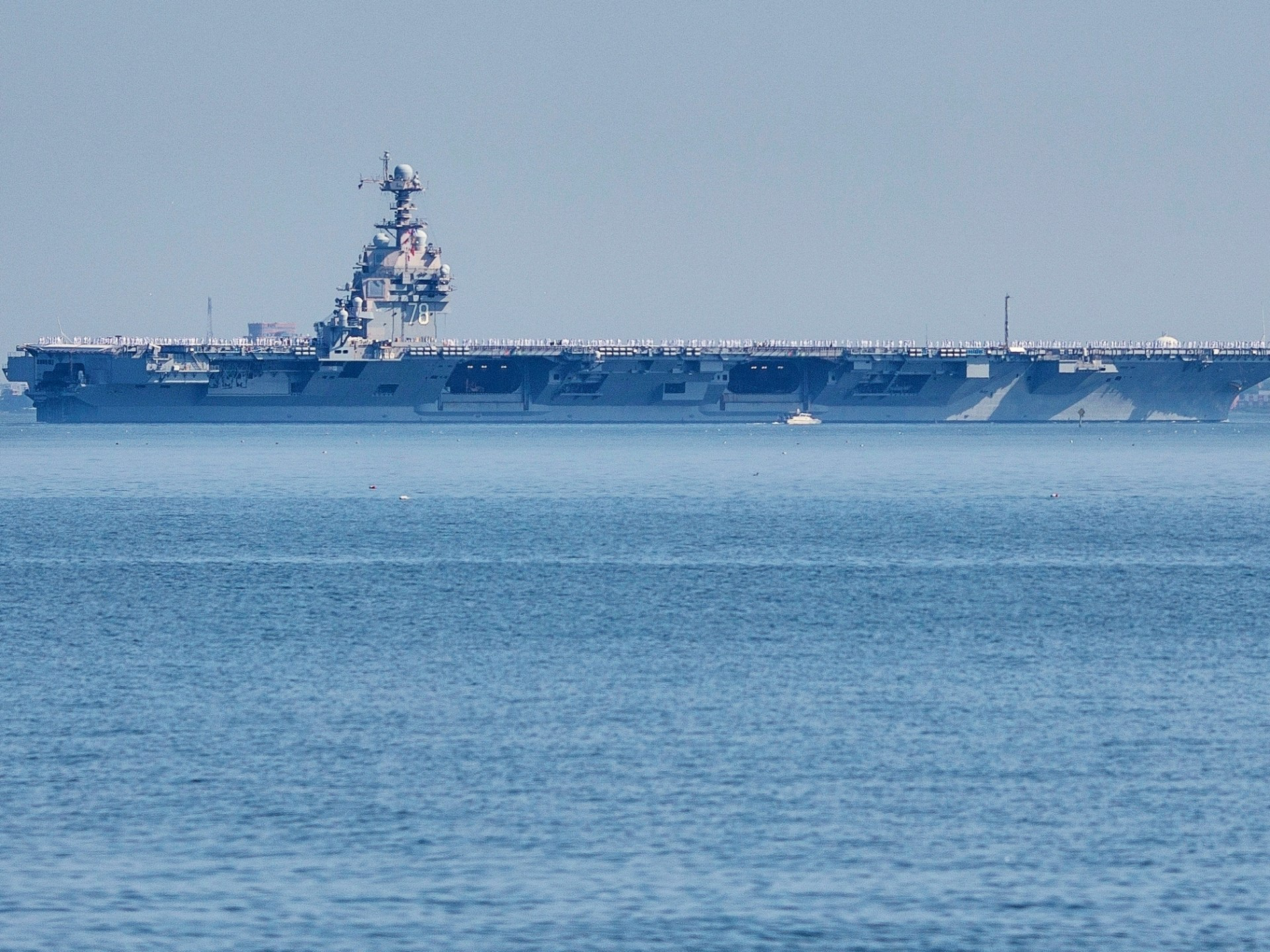
US aircraft carrier USS Gerald R. Ford arrives in Caribbean amid pressure on Venezuela
The advanced US aircraft carrier USS Gerald R. Ford arrived in the Caribbean Sea Sunday, marking a major military deployment seen as increasing pressure on Venezuelan President Nicolás Maduro.
November 16, 2025 - 05:47 PM ET • 2 min read
The United States' most advanced aircraft carrier, the USS Gerald R. Ford, arrived in the Caribbean Sea on Sunday, accompanied by other warships, in a major display of military power by the Donald Trump administration.
The arrival of the carrier strike group, announced by the US Navy in a statement, marks a potentially decisive moment in the administration's strategy toward Venezuela. While the White House insists the deployment is part of a counterdrug operation aimed at defeating and dismantling criminal networks, the move is widely viewed as an aggressive escalation of pressure against Venezuelan President Nicolás Maduro.
The deployment of the USS Gerald R. Ford, considered the largest and most powerful aircraft carrier in the world, represents the largest display of US military power in the region in generations.
Admiral Alvin Holsey, head of the US Southern Command, confirmed the carrier's entry into Caribbean waters, stating its objective is to "combat transnational threats." Rear Admiral Paul Lanzilotta, Commander of Carrier Strike Group 12, emphasized that the group was deployed as the "most capable, adaptable and lethal platform" to be "where it matters, when it matters."
The deployment follows a period of heightened tension and military activity in the region. The US has recently conducted military strikes on vessels that the administration alleges are transporting drugs, including one strike that resulted in the confirmed deaths of four people.
The massive influx of troops and weaponry raises questions about the Trump administration's broader intentions in South America. President Trump recently received a report detailing military options within Venezuela and is reportedly considering a potentially wider campaign, which could include ground attacks or efforts aimed at removing President Maduro.
The arrival also coincided with increased political rhetoric from the Venezuelan opposition. Opposition leader María Corina Machado called on Venezuelan armed forces and security forces to depose their weapons and disobey the government's "infamous orders," stating that the "decisive moment is imminent."